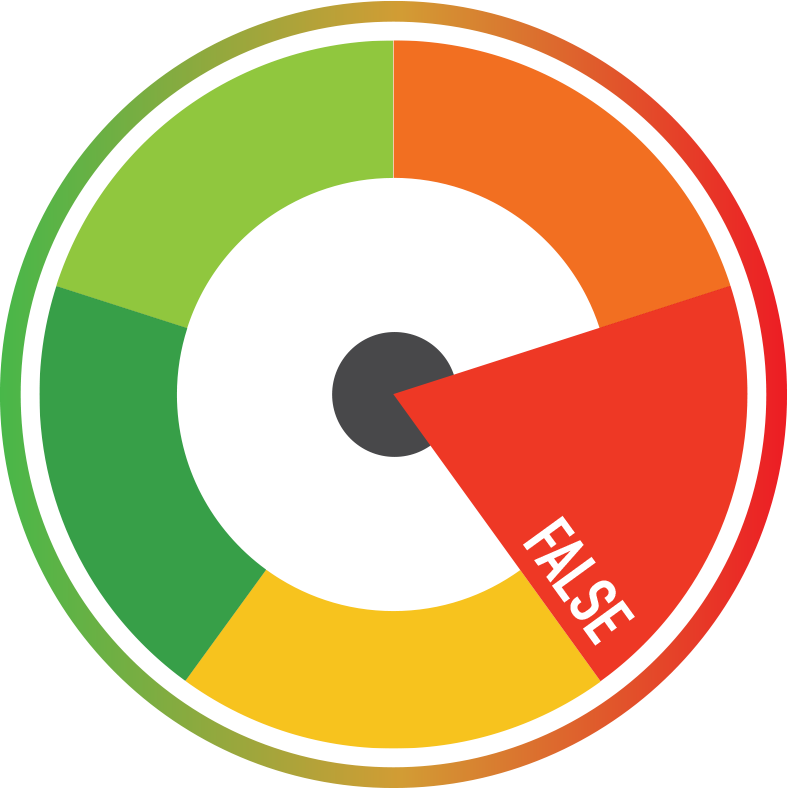Friedrich Merz, Federal Chairman of the Christian Democratic Union of Germany (CDU), said in an interview on the Television show “Welt Talk”: “People go crazy when they see that 300,000 asylum seekers are rejected, don’t leave the country, get the full benefits, get the full welfare benefits.” After checking the facts, it turns out that Merz’s statement is false.

Asylum seekers in Europe and Germany: a growing issue
In recent years, the issue of asylum seekers in Europe has become more and more prominent and has experienced an increasing presence. In 2022, Germany was in fact the most popular European destination country for asylum seekers with a total of 243,835 asylum applications, followed by France, Spain, and Austria. This development is controversial and there are repeated critical and sometimes untenable statements from politicians regarding asylum seekers and their entitlement to benefits, which have been addressed by the press. In Germany, the statement made by Friedrich Merz (CDU) on the television talk show “Welt Talk” on 27 September 2023 caused controversy: “People go crazy when they see that 300,000 asylum seekers are rejected, don’t leave the country, get the full benefits, get the full welfare benefits.” As he did not name any clear sources for his statement, a fact check is necessary.
Fact check: Friedrich Merz and the number of rejected asylum seekers
Firstly, in his statement, Friedrich Merz refers to a number of 300,000 rejected asylum seekers. The spokesperson of the Federal Office for Migration and Refugees stated that on 31 December 2022, a total of 304,308 people who were required to leave the country had been registered, 248,145 of whom had been given a tolerated status. This means that the majority of those required to leave the country have a tolerated stay permit and are still allowed to stay in Germany. But we have to look more closely at the numbers.
According to §50 of the German Residence Law, people who do not have a required residence permit are obliged to leave the country. There can be various reasons for this, for example, if the temporary protection status has been terminated, the visa or residence permit has expired, false information was provided when applying for a residence permit, or the asylum application was rejected. The definition of the obligation to leave the country includes rejected asylum seekers but also includes other groups of people with different reasons for leaving the country.
The actual number of people required to leave the country with a rejected asylum application was 167,848 as of 31 December 2022, which is significantly lower than Merz stated. This can be seen in the printed matter “Drucksache 20/5870” of the German Federal Parliament. Friedrich Merz has conflated the three definitions “persons obliged to leave the country, rejected asylum seekers, and rejected asylum seekers with an obligation to leave the country”. The number of rejected asylum seekers who are obliged to leave the country cited by Merz is therefore incorrect.
Benefits for asylum seekers in accordance with the Asylum Seekers Benefits Act
In Germany, the benefits that asylum seekers receive are defined in the Asylum Seekers’ Benefits Law (AsylbLG). In addition to the entitlement to welfare benefits in paragraph 1, the benefits in special cases in paragraph 2, and the basic benefits in paragraph 3, the Asylum Seekers Benefits Act regulates benefits in the event of illness, pregnancy, and childbirth in paragraph 4. According to paragraph 1 of the section, necessary medical and dental treatment is only granted for acute illnesses and painful conditions. There are only exceptions in special cases, as described in paragraph 2. According to this, beneficiaries who have been in Germany for an uninterrupted period of 18 months are entitled to social welfare benefits in accordance with the ninth book and twelfth book of the German Federal Social Code (Sozialgesetzbuch), in deviation from the AsylbLG. In particular, the fifth chapter of the twelfth book of the German Federal Social Code regulates assistance in matters of health in the case of social welfare benefits.
Challenges in the medical care of asylum seekers
In an interview with Andrea Kothen, a consultant at Pro Asyl e.V., it becomes clear that refugees who are covered by the basic benefits of the Asylum Seekers Benefits Law (AsylbLG) in particular have difficulties receiving medical services. In practice, there are numerous reports of people being turned away in the primary reception centres, only being given aspirin or tea and not being able to see the medical specialist they need.
Andrea Kothen confirms that asylum seekers and tolerated persons rejected in the asylum procedure are subject to the AsylbLG and receive either low basic benefits or, after 18 months, are generally entitled to benefits described in paragraph 2 of the AsylbLG similar to social welfare. Although they are not covered by a health insurance policy, they receive medical benefits comparable to those insured by law. Asylum seekers, rejected asylum seekers and the regulations in paragraph 4 of the Asylum Seekers Benefits Law are not identical. According to Andrea Kothen, recognised refugees no longer fall under the AsylbLG due to their protection status and receive citizen’s allowance or social assistance.
This means that rejected asylum seekers are not entitled to any more benefits than social welfare recipients. However, this only applies after 18 months of residence in Germany. Asylum seekers who are still covered by the basic benefits of the Asylum Seekers’ Benefits Law are at a significant disadvantage when it comes to medical care, as they are only granted benefits for acute illnesses and pain.
After an unsuccessful inquiry at the Federal Statistical Office, it was not possible to determine the number of rejected asylum seekers with a stay of more than 18 months who were obliged to leave the country.
Costs for the treatment of rejected asylum seekers: lack of information
As the federal and state governments are responsible for the benefits under the Asylum Seekers Benefits Law, a request was submitted to the State Statistical Office of Lower Saxony to obtain information on the number of recipients of benefits under the Asylum Seekers Benefits Law and the costs of treating rejected asylum seekers.
The State Statistical Office of Lower Saxony was only able to provide expenditure and income information from the local providers for the AsylbLG up to the year 2021. The expenditure for 2021 totaled 421,460,978 million euros. In comparison, 19,029 initial and follow-up asylum applications were submitted in Lower Saxony in the year 2021.

The state of Lower Saxony has no more up-to-date data on the number of benefit recipients than those for 2019. According to the data set, 103,910 people received benefits in 2019. The State Office of Lower Saxony emphasises that rejected asylum seekers are not included in the statistics.

Source: https://www1.nls.niedersachsen.de/statistik/html/default.asp
Following this incomplete information, further inquiries were made to the relevant authorities, including the Federal Office for Migration and Refugees, the Federal Statistical Office, and the Federal Ministry of Health. All three authorities confirmed that there is no information available on the cost of treating rejected asylum seekers.
Conclusion
In Short, Merz has conflated three definitions. The number of asylum seekers who have been rejected and are obliged to leave the country is significantly lower than Merz claims. According to §4 of the AsylbLG, asylum seekers do not receive full benefits or full welfare assistance. On the contrary: if asylum seekers and rejected asylum seekers have been in Germany for less than 18 months, they are even disadvantaged in terms of medical treatment. The statement “People go crazy when they see that 300,000 asylum seekers are rejected, do not leave the country, receive full benefits and full medical care” by Friedrich Merz was proven false after careful examination through the fact check.
RESEARCH | ARTICLE © Quyen Do and Joline Wiehe, Jade University of Applied Sciences, Germany
Leave your comments, thoughts, and suggestions in the box below. Take note: your response is moderated.





